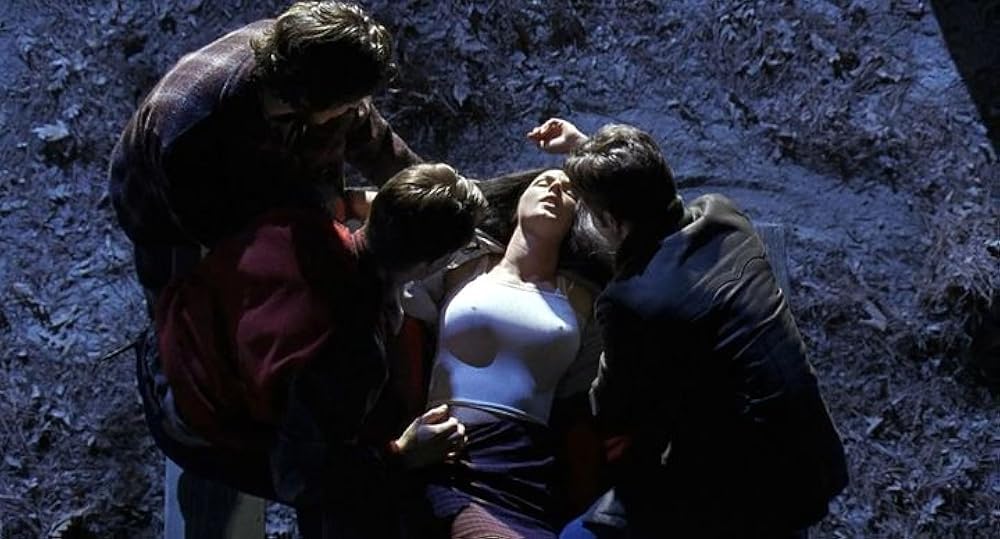Cherry Falls (1999) – A Bloody Twist on Teen Slasher Tropes
Cherry Falls, directed by Geoffrey Wright and starring Brittany Murphy, is a subversive teen slasher that takes a familiar genre and flips it on its head. Filmed in 1999 but not widely released until 2000 due to its controversial content, the movie became a cult favorite for its dark humor, satirical edge, and a provocative twist on the “virgin dies first” horror cliché.
Set in a small, conservative American town, Cherry Falls begins with the brutal murder of two high school students. As more bodies pile up, a disturbing pattern emerges: the killer is targeting virgins. This chilling reversal of typical horror logic sets the tone for the rest of the film. Rather than promoting chastity as a form of survival, Cherry Falls pushes its teenage characters into a frenzied race to lose their virginity in order to stay alive.

At the center of the story is Jody Marken, played by Brittany Murphy in one of her most memorable roles. Jody is a quiet, intelligent teenager who becomes both the moral anchor and the emotional heart of the film. As the daughter of the town sheriff (Michael Biehn), she finds herself caught between the town’s hysteria and her own unraveling sense of identity. Murphy’s performance is nuanced and raw—her nervous energy and vulnerability bring depth to a character who could have easily been a stock “final girl.”
The film sharply critiques both societal repression and media-induced hysteria. The townspeople, desperate to protect their image and their children, respond to the murders with secrecy and denial—fueling a chaotic chain of events that culminates in one of the most bizarre and unforgettable sequences in horror history: a mass “sex party” organized by teens trying to avoid the killer. It’s played for satire, but the scene is loaded with tension, awkwardness, and commentary on the contradictions in adult authority and teenage rebellion.

Geoffrey Wright’s direction gives the film a moody, almost surreal quality. The cinematography is slick and shadowy, and the violence—though sometimes abrupt—is stylized rather than gratuitous. The killer is kept largely offscreen for most of the runtime, adding a sense of dread and mystery. When the truth is finally revealed, it carries emotional weight, linked to buried trauma and secrets that the town tried to forget.
Despite its clever script and strong performances, Cherry Falls faced distribution challenges due to its themes of teenage sexuality and violence. It was denied a theatrical release in the U.S. and went straight to television, which limited its exposure. However, over time, it gained appreciation among horror fans for its willingness to tackle taboo subjects and twist genre norms.
In conclusion, Cherry Falls is an underrated gem in the slasher canon. With its provocative premise, compelling lead performance, and razor-sharp satire, it stands apart from the formulaic horror of its era. Rather than punishing teenage desire, it explores the dangers of repression and secrecy, offering a darkly humorous but genuinely eerie look at small-town hypocrisy and survival.


